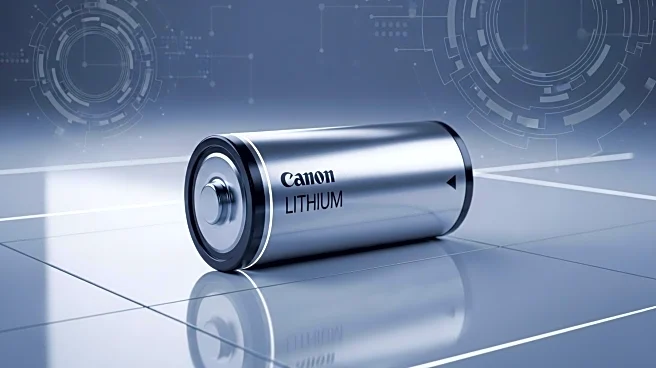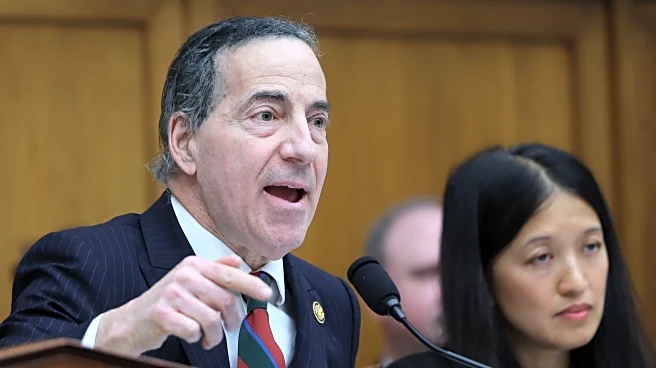What's Happening?
Anson Resources, an Australian mining company, has signed an offtake agreement with South Korea's LG Energy Solution for the supply of battery-grade lithium carbonate. The deal involves LG Energy Solution acquiring up to 4,000 dry metric tons of lithium carbonate annually from Anson's project in the Paradox Basin, Utah, starting in 2028. The agreement has an initial five-year term with an option for a five-year extension, representing nearly 40% of the project's start-up production capacity. Anson's stock surged nearly 25% following the announcement.
Why It's Important?
This agreement is significant as it strengthens the supply chain for battery-grade lithium, a key material for electric vehicle batteries. The deal supports Anson's debt funding efforts and highlights the importance of U.S.-made lithium in the global battery market. As lithium prices have been in a downturn due to slower EV uptake, this partnership could signal a stabilization and potential growth in the industry. LG Energy Solution's commitment to sourcing lithium from the U.S. reflects a strategic move to secure reliable and cost-effective materials for its battery production.
What's Next?
The commencement of lithium supply in 2028 marks a critical milestone for Anson Resources, potentially boosting its market position and financial stability. The partnership with LG Energy Solution could lead to further collaborations and investments in the U.S. battery manufacturing sector. Stakeholders in the electric vehicle and battery industries will likely watch for developments in production capacity and market dynamics, as these could influence future supply agreements and technological advancements.
Beyond the Headlines
The deal underscores the growing importance of securing domestic sources of critical materials like lithium, which are essential for advancing clean energy technologies. It also highlights the competitive landscape in the battery industry, where companies are vying for strategic partnerships to ensure supply chain resilience. The focus on U.S.-made lithium could drive policy discussions on resource management and environmental impacts associated with mining activities.










